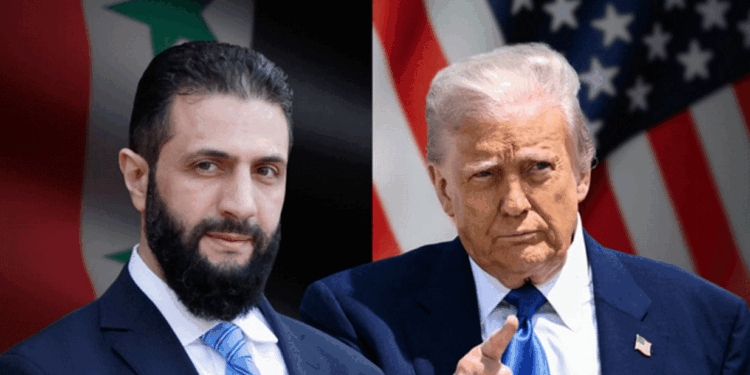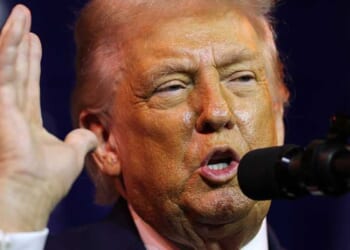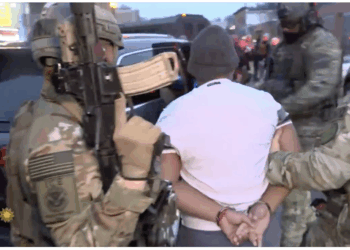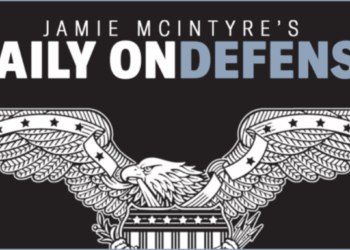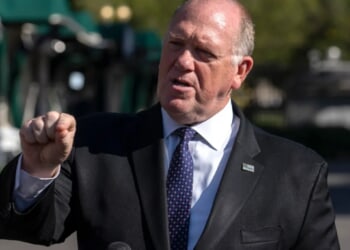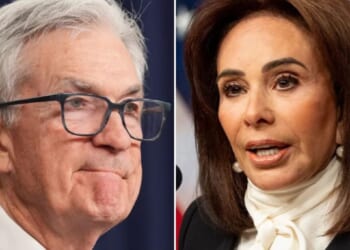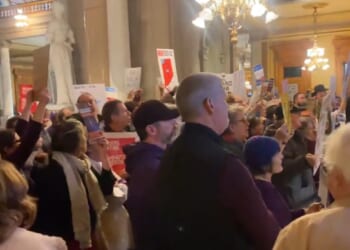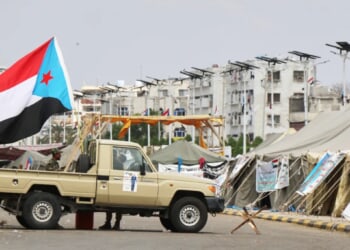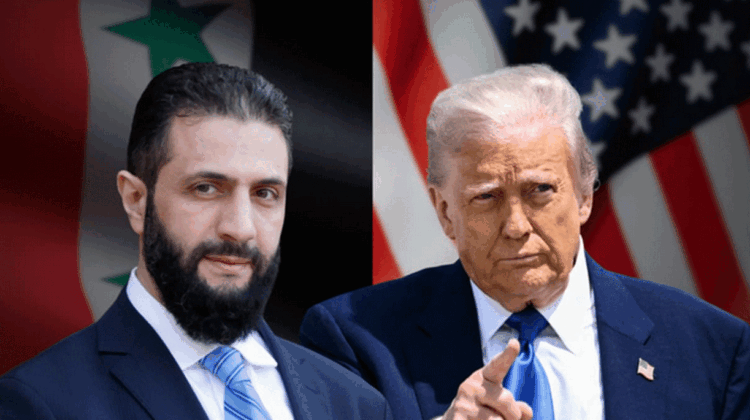
Order Michael Finch’s new book, A Time to Stand: HERE. Prof. Jason Hill calls it “an aesthetic and political tour de force.”
Sign up to attend Michael’s talk in Los Angeles on Thursday, November 20: HERE.
The West claims it wants to rebuild Syria. To see peace, reconstruction, and refugees returning home. Yet, paradoxically, it chooses to deal with a man the U.S. itself lists as a Specially Designated Global Terrorist — Abu Mohammad al-Jolani. This contradiction lies at the heart of one of the most dangerous illusions in modern diplomacy: that extremism can be “managed,” and that a man who once led al-Qaeda’s affiliate in Syria can somehow become a legitimate political actor simply by changing his clothes and vocabulary.
Al-Jolani — born Ahmed al-Sharaa — did not rise through reform or civic service. He emerged from the black flags of al-Qaeda in Iraq, built al-Nusra Front, and commanded a war that bled an entire nation. When his movement’s reputation became a liability, he rebranded it as “civil administration,” hired Western public relations firms, and began appearing on international television in a suit instead of fatigues.
But a rebrand does not erase a record. It conceals it. The U.S. Treasury Department still lists him as a global terrorist under Executive Order 13224 — a classification that prohibits reconstruction investment, banking cooperation, and multilateral aid. Under this law, no international institution — not the World Bank, not the IMF, not a single private contractor — can legally rebuild Syrian infrastructure while a designated terrorist sits in power.
This is not a diplomatic obstacle. This is a legal blockade. Even if sanctions were adjusted administratively or names temporarily “lifted” on paper, the core designation remains. A terrorist cannot become lawful by decree. And no administration can force banks, institutions, or insurers to violate federal law. Which is why the outrage in Washington has erupted.
Members of Congress, legal watchdog groups, and segments of the American public are demanding accountability:
- How can the United States entertain dealings with a man still classified as a terrorist?
- How can American diplomacy endorse an interim body that was never elected, never legitimized, and holds power through coercion?
Legitimacy cannot be manufactured by photo ops in Washington. It comes only from legality and consent. Syria already has a legal, viable pathway that aligns with international law — not militia rule. Brigadier General Manaf Tlass, through the Transitional Military Council (TMC) proposal, proposes a structured plan: establish transitional authority, stabilize security, and hold constitutional elections under UN Resolution 2254.
He seeks a state, not a personal fiefdom. He does not sit on any sanctions list. He is not tied to jihadist networks. His roadmap is the only one that meets the legal criteria for reconstruction and diplomatic recognition. It restores the principle that sovereignty belongs to the Syrian people — not whoever controls the last checkpoint.
A government formed by a terrorist organization remains illegitimate under international law, regardless of any temporary administrative “sanctions removals.” It cannot sign reconstruction contracts. It cannot seek recognition. It cannot ask for aid. The uproar seen inside the United States is not just ideological. It is about the rule of law. Elected officials — pressured by public opinion — are questioning:
- How can the U.S. promote democracy abroad while rewarding armed extremism with political currency?
Every handshake with al-Jolani sends a chilling message to Syrians: You can lose your home, your family, your country — and the world will still reward your oppressor if he wears a suit and speaks English. No nation can rebuild while its fate is outsourced to a militia. No peace can last while its foundation is illegality.
If the West truly wants stability, then it must stop dressing expediency as diplomacy. Stop legitimizing a terrorist by ceremony. Stop confusing a temporary militia with a state. Syria’s reconstruction will not begin through rebranding terror. It will begin when legality returns.
It will begin when a legitimate transitional authority—rooted in a structured military council and accountable to elections—replaces the rule of factions. Because peace cannot be negotiated with those who profit from chaos. And a nation cannot be rebuilt through the hands that destroyed it.
Rachel Avraham is the CEO of the Dona Gracia Center for Diplomacy and an Israel-based journalist. She is the author of “Women and Jihad: Debating Palestinian Female Suicide Bombings in the American, Israeli and Arab Media.”

